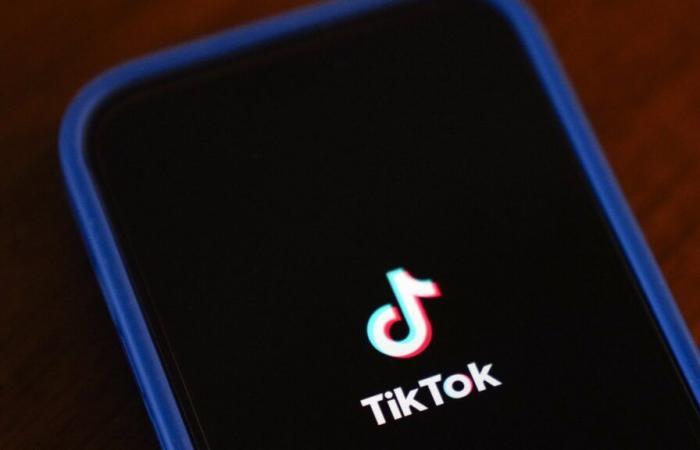The TikTok app logo is shown on an iPhone on Friday, Jan. 17 in Houston.
Ashley Landis/AP
hide caption
toggle caption
Ashley Landis/AP
After a black-out that lasted about 14 hours, TikTok has returned to the U.S.
The hugely popular video app was taken offline Saturday night in compliance with a law that effectively banned the service nationwide unless it splits off from ByteDance, its China-based owner. Last week, the Supreme Court upheld the law.
On Saturday, Google and Apple removed the app from their stores, a requirement of the ban, which also forbids web-hosting companies from providing back-end support to the app.
When Biden officials said they would leave enforcement of the law up to the Trump administration, web-hosting services were not confident they would not be prosecuted. The law outlines stiff penalties for violations that could cost the companies billions.
On Sunday morning, President-elect Donald Trump effectively reversed the black-out with a single post to his Truth Social social network: He issued a statement vowing to pause the law and said he would extend a liability shield to tech companies that support TikTok, as the app’s future is worked out by his incoming administration.
-Not long after, companies that provide web support, including firms Oracle and Akamai, restored the TikTok website and app for millions of users in the U.S.But Trump’s post Sunday gave the web providers the assurance they needed to bring TikTok back, according to a person close to TikTok’s ongoing discussions with the Biden administration and Trump’s transition team, who was not authorized to speak about the talks.
TikTok’s future remains clouded with legal and political questions.
Apple and Google, which operate the all-powerful app stores for mobile devices, still have not agreed to let TikTok return.
Without the backing of those two companies, TikTok cannot be downloaded by new users; the app cannot receive vital software updates to resolve bugs and other glitches; and the app’s multi-billion-dollar economy is halted, with users unable to buy and sell items.
Neither company returned a request for comment. Legal experts said the tech giants may be waiting to see if Trump follows the letter of the law, which requires the White House to certify to Congress that a deal to sell TikTok is in progress before it can halt enforcement of the ban. Otherwise, companies like Apple and Google could, in theory, face steep financial penalties.
Beyond the Apple and Google morass, some lawmakers in Washington are raising doubts about Trump’s ability to intervene without abiding by the specific requirements set forth in the law.
Arkansas Sen. Tom Cotton, chairman of the Senate Intelligence Committee, said on Sunday that Trump does not have the authority to postpone the start date of a law that is already in effect. He noted in a post on X that for Apple, Google and other companies, there could be grave consequences for assisting TikTok before it splits from ByteDance.
“Any company that hosts, distributes, services, or otherwise facilitates communist-controlled TikTok could face billions of dollars of ruinous liability under the law,” Cotton wrote. “Not just from DOJ, but also under securities law, shareholder lawsuits and state AGs,” he continued, referring to the Department of Justice and state attorneys general. “Think about it.”






